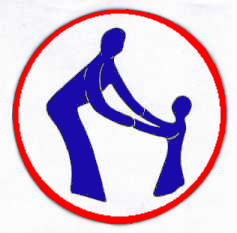Curriculum
There are unlimited options that will engage and excite your child and help them build confidence. The Montessori method incorporates instruction in six areas:
- Practical Life
- Sensorial Activities
- Math
- Geography
- Language
- Expression
Practical Life
Practical Life activities teach children life skills, such as hygiene, care of the person and environment, pouring, ordering, sewing, cleaning,etc. Along with the confidence that comes from “Doing It Myself!”, these activities promote motor control, sequencing, and concentration, all skills needed for more traditional academic subjects such as math and writing.
Sensorial Activities
Sensorial Activities help children to become masters of their environment. By using all of their senses (e.g. vision, hearing, tactile, taste, and smell) the child will thoroughly understand his/her environment.
Sensorial activities make abstract ideas concrete. For example, working with magnetic and non-magnetic items or manipulating various 3-D geometric shapes over and over will allow children to internalize the concept of that solid. When they are older, their experiences seeing, touching, and hearing the name of the solid will make it easier for them to learn higher level concepts.
Math
The younger students will begin to learn number concepts through rhymes, songs, poems, and activities. When the children are ready to make relationships between the words and the concepts of the number, the Guide will help the child through concrete activities, to gain understanding of math symbols, quantities, sets, math functions, and more.
This video shows one of our guides, Chiquie, working with an older student.
Geography
Beginning with verbal presentations, pictures, and maps, this area progresses to sensorial experience and memory work. The child will become aware of different cultures, languages, and spiritual beliefs. On a more concrete level, the children will experiment with a variety of fauna, flora, and landforms.
Language
The youngest children work on vocabulary enrichment and sentence development. Older children develop reading readiness skills by learning letter sounds and their shapes, which will enable them to construct words, with a strong emphasis on phonics. The children then progress into writing and reading skills.
Expression Activities
Expression activities include arts, crafts, music, and horticulture. The children are encouraged to create freely with materials–and create they do! It’s not uncommon for children to come home with homemade capes, airplanes, or letters from friends.
Musically, we focus on developing of a sense melody and rhythm through the use of instruments and song. Tonico, our musical director, provides opportunities for children to play instruments, perform with microphones, and use other equipment that the pros use.
Horticulture develops a commonality and responsibility to the Earth. Children learn about the life cycle of plants, where vegetables and fruits come from, and what living things need to grow. But most importantly–for the children anyhow–they learn to harvest the produce!
